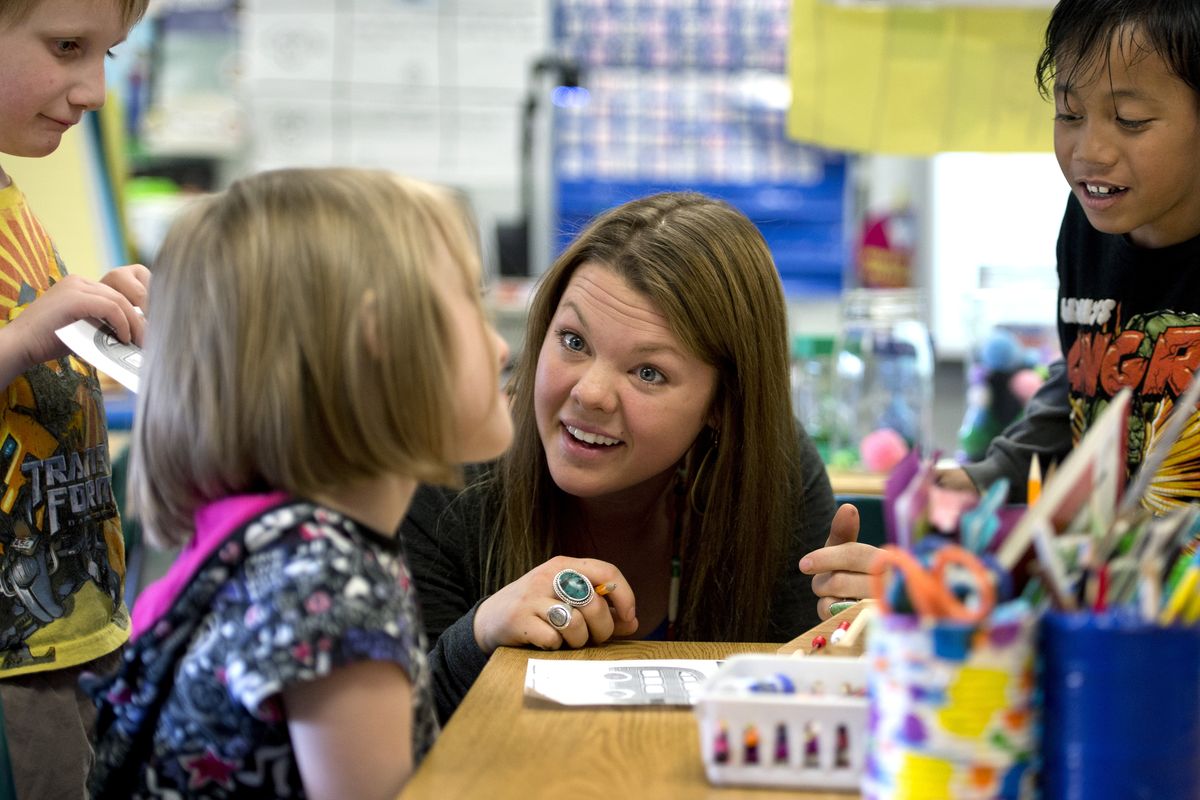Expanding full-day kindergarten possible in Spokane

Hundreds of studies show full-day kindergarten improves young learners’ academics and behavior, at least through second grade.
Washington’s highest court last year mandated that lawmakers fund basic education, including full-day kindergarten; the Legislature has until 2018 to comply.
School district leaders statewide don’t want to wait, and at least one Spokane Public Schools board member has expressed frustration with the delay in providing all students with the opportunity.
Currently, 15 of Spokane Public Schools’ lower-income elementary schools have the program, and the other 19 schools – 1,161 students – offer only half-day kindergarten.
“How do you explain to half of the students, ‘We are not going to educate you today, we are only going to educate half the students and you have to go home’?” school board member Rocky Treppiedi said. “How can we say, ‘We aren’t going to educate you because, well, you make too much money’? We don’t approach first grade like that; we don’t approach 12th grade like that.”
Treppiedi has twice proposed that the school board agree to fund full-day kindergarten for all students. Other board members hesitated, however, because they want to know if the money will be coming from the Washington Legislature.

Neither the House nor Senate budget proposal provides enough money for all of Washington’s K-12 schools to offer full-day kindergarten next year.
The Senate is proposing an extra $40.6 million be spent over the next two years to increase all-day kindergarten, expanding it from 22 percent of kindergarten enrollment to 30 percent next school year and 35 percent in 2014-15.
The House is proposing an extra $90 million over the next two years, expanding it to 38 percent next year and 60 percent in 2014-15.
In both cases, emphasis would be on schools with high poverty rates.
If Spokane Public Schools decides to pay for all-day kindergarten at the remaining 19 schools – an additional cost of $3.3 million annually – and the Legislature doesn’t come through with more money, other programs would likely have to be cut, district officials said.
Superintendent Shelley Redinger is an early-education advocate and would like to implement full-day kindergarten districtwide, she said, but she’s cautious due to the uncertainties of state funding. She along with other school district superintendents lobbied legislators last week on the issue.
“We are waiting to get a little bit more information from the state before we make the full commitment,” Redinger said. “I’m optimistic, though.”
Treppiedi, the school board member, urged action.
“It’s about people who know better allowing the system to fail to provide basic education at the foundation,” he said. “You’re only in kindergarten once, so who are we to refuse to provide basic education to our children when they enter the school system?”
A recent statewide assessment of Washington kindergartners showed a high percentage of students arrive unprepared, some unable to count to 20.
Studies show an advantage of full-day over half-day kindergarten: Students show significant gains in math and reading by the end of the school year, especially low-income children and second-language learners, and are better prepared for first grade.
Sen. Michael Baumgartner, R-Spokane and vice chairman of the Senate Ways and Means Committee, said he’d like to see more money in the budget for full-day kindergarten in the next two years, and “in an ideal world” the Legislature would be able to do that.
“I’d love to have it if we could afford it, but we need a government that lives within our means,” said Baumgartner, who added that his mother has taught kindergarten for 44 years.
With the current House budget, Spokane Public Schools will likely be able to have full-day kindergarten in all elementary schools, said Rep. Timm Ormsby, D-Spokane and vice chairman of the House Appropriations Committee.
While the plan only covers full-day kindergarten for about 58 percent of the state by 2014-15, it also provides extra money to districts for maintenance, supplies and operating costs, which would free up more money from the local levy for full-day kindergarten if the district chooses.
“They’re going to get what they want,” Ormsby said, if the House budget proposal, or something close to it, passes.